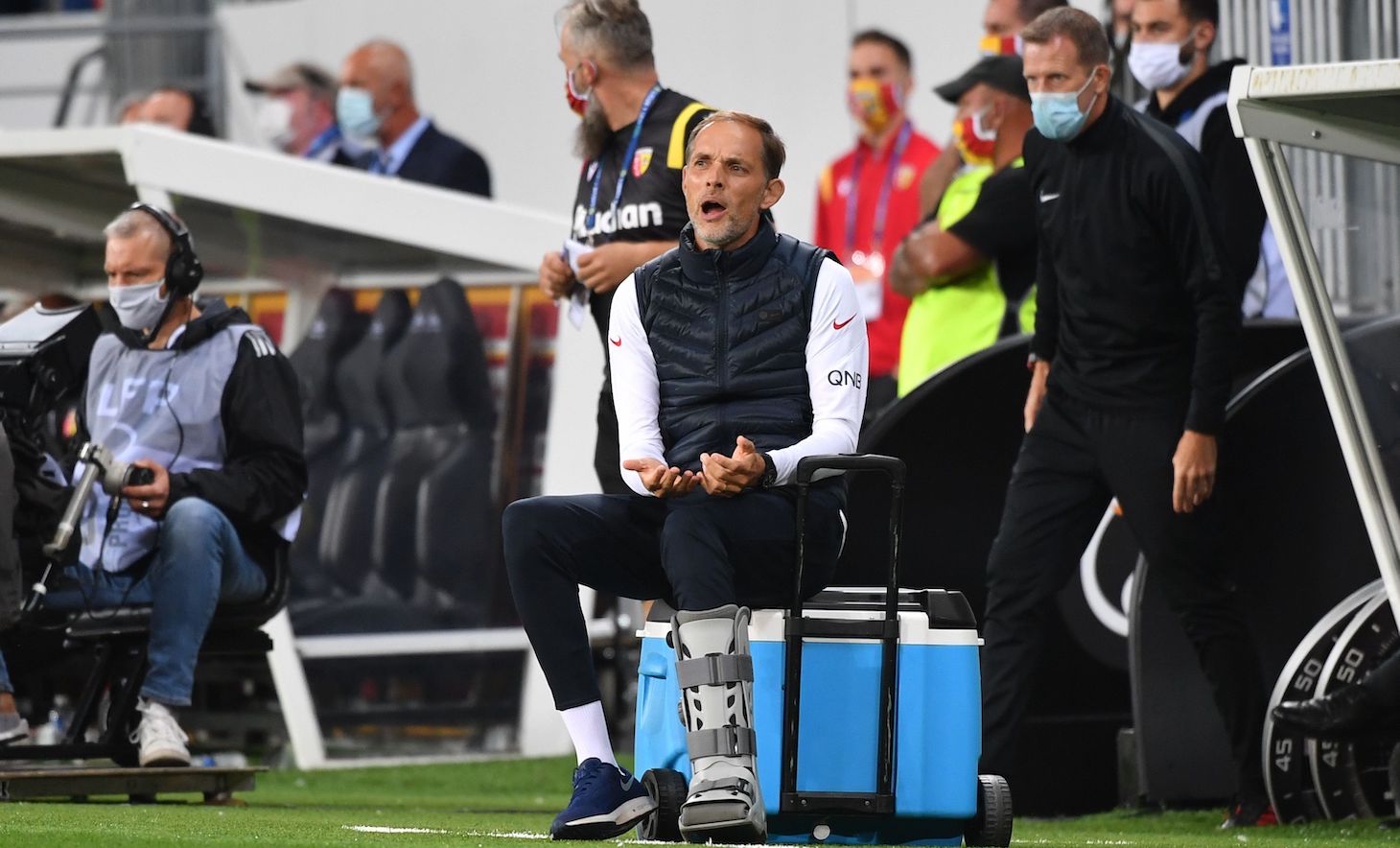Not even three weeks after a painful loss to Bayern Munich in the Champions League final, Paris Saint-Germain kicked off its Ligue 1 season yesterday with another loss. You might imagine that the Parisiens were still dealing with the aftereffects of that discouraging loss to Bayern in Lisbon, and that that continental hangover was the culprit for the lackadaisical showing against newly promoted Lens. However, it was in fact a hangover of a more literal sort, incurred at a different Iberian locale, that bears the blame for the PSG that lost yesterday looking nothing like the PSG we're used to.
The reason why PSG played so poorly against Lens yesterday is because almost none of PSG's best players were available for the match. The reason why almost none of PSG's best players—namely: Neymar, Kylian Mbappé, Ángel Di María, Marquinhos, Mauro Icardi, Leandro Paredes, and Keylor Navas—were available is because they had all recently tested positive for COVID-19, which they all (except for Mbappé, who wasn't there) very likely caught while vacationing together in Ibiza after the Champions League final.
In place of those tanned, rested, but potentially highly contagious stars, PSG had to feature an assortment of backups and teens against Lens. The results were not pretty.
In the 1–0 loss, PSG had 79 percent possession of the ball but could only turn that into eight total shots, only one of which was on target, and none of which qualified as a big chance. In the other direction, Lens popped in seven shots, three of which were on target, and four of which were big chances. (All stats via SofaScore.) Igniatius Ganago scored the match's only goal, taking advantage of a blunder by PSG's replacement for the quarantined Navas, third-choice keeper Marcin Bulka, making the second professional start of his career:
PSG's sporting director, Leonardo, spoke in defense of the Ibiza crew, explaining that "All footballers went to Ibiza, even Bayern's." Pointing to what he perceives to be the double standard PSG players are subject to, he added, "Every team has positive cases, but it's a scandal when it happens to Paris... these are players who were with their wives and children."
Leonardo does have a point there. If sports leagues are going to continue their seasons in the midst of a global pandemic—all in an effort to make sure the clubs and owners and TV broadcasters and sponsors and players and governing bodies and merchandise distributors and the rest all get their money—they have to expect players to act like players and blow off some steam on a beach somewhere during their brief moments of respite. It's not too dissimilar to universities inviting students back on campus so that the schools don't go broke, and then setting as their main coronavirus prevention strategy the criminalization of the very things college kids are there to do. On the other hand, it's appropriate to ask more of highly paid professional athletes than of college students, and in a time when millions around the world have lost their lives and livelihoods due to the coronavirus fallout, asking superstars to maybe fly their private jets to a more secluded beach, and maybe don't bring all your friends, doesn't feel like too much.
Nevertheless, getting you to focus on the behavior of individuals instead of on the systemic forces that incentivized those behaviors is Tricknology 101. And as the European leagues start back up and the NFL gets into full swing, we'll probably see more instances of players infecting each other and getting blamed for "risky" behavior that most likely wouldn't even matter if The Man wasn't asking them to put their and their family and friends' health on the line so that The Man can get richer. So, by all means, chuckle at Paris Saint-Germy right now, but don't forget who's really behind this.






